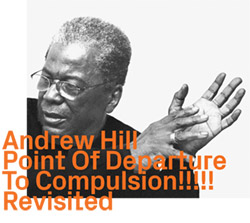
Remastering pianist Andrew Hill's distinct and exemplary albums issued on Blue Note Records in 1965 & 1967: Point of Departure, illustrating Hill's complex and exciting compositions in a front line with Eric Dolphy, Joe Henderson, Kenny Dorham and Tony Williams & Richard Davis; and the percussively rich Compulsion with John Gilmore, Freddie Hubbard, Cecil McBee, & Joe Chambers.
In Stock
Quantity in Basket: None
Log In to use our Wish List
Shipping Weight: 3.00 units
EU & UK Customers:
Discogs.com can handle your VAT payments
So please order through Discogs
Sample The Album:
Eric Dolphy-alto saxophone, flute, bass clarinet
Joe Henderson-tenor saxophone
Kenny Dorham-trumpet
Andrew Hill-piano
Richard Davis-double bass
Anthony Williams-drums
John Gilmore-tenor saxophone, bass clarinet
Freddie Hubbard-trumpet, flugelhorn
Andrew Hill-piano
Cecil McBee-double Bass
Richard Davis-double bass
Renaud Simmons-comgas
Nadir Qamar-African drums, African thumb piano
Joe Chambers-drums
Click an artist name above to see in-stock items for that artist.
UPC: 752156113928
Label: ezz-thetics by Hat Hut Records Ltd
Catalog ID: ezz-thetics 1139
Squidco Product Code: 32496
Format: CD
Condition: Sale (New)
Released: 2022
Country: Switzerland
Packaging: Cardboard Gatefold
Recorded at Van Gelder Studio, Englewood Cliffs, New Jersey on March 21st, 1964, and October 8th, 1965. Point of Departure originally released in 1965 as a vinyl LP on the Blue Note label with catalog code BLP 4167. Compulsion originally released in 1967 as a vinyl LP on the Blue Note label with catalog code BLP 4217.
"Bob Belden was renowned for his ability to transcribe music in real time, but he was challenged by Andrew Hill's. Engaged by Mosaic Records to supply analysis for their 1995 box set of Hill's early Blue Note albums, the composer-arranger often grappled with the singularity of Hill's music, its unorthodox structures, rhythmic shifts, and unusual melodic and harmonic contours. It is no wonder that less well-equipped critics did not fully grasp Hill's first Blue Notes when they were first issued.
The complexities of his music are probably why Hill was summarily consigned to what A.B. Spellman called "the second wave of the avant-garde" in his Black Fire notes. Thirty years later, Michael Cuscuna recognized a rhyme in jazz history when he observed that just as "Monk was lumped into the bebop movement, so was Andrew put into the freedom bag." There was little, if anything, in his late '50s sessions for Ping and Warwick, or in his subsequent work with Roland Kirk, Walt Dickerson, and Joe Henderson, to suggest that Hill was a budding insurgent.
Additionally, Hill was identified with the New York scene when he spent his formative years in Chicago, where he worked with, among other notables, Von Freeman, John Gilmore, and, most importantly, Richard Davis. Hill also briefly took composition lessons from William Russo, and was occasionally tutored on extended composition over a two-year period by Paul Hindemith. Hill's insights into form and invention were complemented by listening to Art Tatum - "all modern piano playing's Tatum," he told Spellman. Hill may have made his name in New York, but his music was incubated in Chicago.
Tatum, Russo, and Hindemith, are a constellation of influences that partially explains why there is much to unpack in Hill's music, but not its immediacy. Hill's early Blue Notes established his ability as a composer to vividly project romance and humor, as well as urgency and resolve; quartet dates, they also gave Hill ample room to use his themes' twists and turns to create cogent, spark-throwing solos. Hill proved to be idiosyncratic and accessible, stretching the idiom while still swinging.
Point of Departure was Hill's first opportunity to significantly expand his palette. In addition to the North Star-like Davis, he enlisted musicians that formed another constellation: Henderson and his frequent frontline partner, Kenny Dorham, embodied the rapprochement between bebop and modal jazz, while Eric Dolphy and Anthony Williams represented jazz's outbound phalange. Given their diverse sensibilities as composers and soloists, it is remarkable that they gelled as a unit around Hill's oblique structures and prodding accompaniment, and delivered inspired performances throughout.
Dorham's command of tone color, Henderson's engulfing sound, and Dolphy's three instruments, gave Hill's sextet the heft of a larger little big band, their crisp ensembles giving Williams and Davis latitude in providing rhythmic buoyancy. (Hill told annotator Nat Hentoff that Davis was "the greatest bass player in existence," a claim supported throughout the album.) Not only did Hill's sextet make charts like "Refuge" and "Flight 19" soar, they tapped the emotional depths of the elegiac "Dedication" and the boldly constructed mood swings of "Spectrum."
Point of Departure was an inflection point in Hill's output for Blue Note, his penchant for formal complexity and compacted materials - which he revisited beginning in 1969 with a nonet date, tracks with a string quartet-augmented ensemble, and an album with voices - giving way to what proved to be a short-lived foray into the minimally scored pieces that distinguished Compulsion!!!!!. The two recording sessions were separated by only eighteen months, but they were among the most convulsive in jazz history, accounting for the pronounced contrasts between the resulting albums.
The differences between the albums are stark. "Compulsion" has a mere five-note theme, its readings amounting to a small percentage of its nearly fifteen-minute running time. Driven by furious percussion - Joe Chambers played drums; Nadi Qamar and Renaud Simmons played hand drums - the piece is much more reliant on longer, open-ended improvisations than Hill's prior compositions. Gilmore and Freddie Hubbard may now seem like an odd-couple front line, but each deftly plays off the other, particularly during a downshifting trio interlude with Chambers.
The shadow-filled "Premonition" is also unusually minimal, a string of rubato long notes stated on flugelhorn and bass clarinet. It is the one track where Qamar and Simmons emphasized color instead of polyrhythms, the then seldom heard kalimba enhancing Davis' probing solo. (Davis joined Cecil McBee for this track, which echoed the two-bass textures of Hill's Smoke Stack.) On "Limbo," Hill's most typical construction of the album, the percussionists simmered, while they immediately reached full boil on the hornless "Legacy," one of Hill's most intense recorded performances.
Alfred Lion put Hill on a par with Monk and Herbie Nichols in terms of originality. He regularly recorded Hill, who remained on the Blue Note roster after Lion's retirement, documenting his music in a variety of new settings until early 1970. Still, the release of several albums was delayed for a year or more, beginning with Smoke Stack - the stellar Passing Ships remained in the vault for over three decades. Point of Departure and Compulsion!!!!! were two recordings promptly brought to market that made an immediate and lasting impact, documenting an important composer-improviser in mid quest."-Bill Shoemaker, July 2022
Artist Biographies
• Show Bio for Eric Dolphy "Eric Allan Dolphy Jr. (June 20, 1928 - June 29, 1964) was an American jazz alto saxophonist, bass clarinetist and flautist. On a few occasions, he also played the clarinet and piccolo. Dolphy was one of several multi-instrumentalists to gain prominence in the same era. His use of the bass clarinet helped to establish the instrument within jazz. Dolphy extended the vocabulary and boundaries of the alto saxophone, and was among the earliest significant jazz flute soloists. His improvisational style was characterized by the use of wide intervals, in addition to employing an array of extended techniques to emulate the sounds of human voices and animals. He used melodic lines that were "angular, zigzagging from interval to interval, taking hairpin turns at unexpected junctures, making dramatic leaps from the lower to the upper register." Although Dolphy's work is sometimes classified as free jazz, his compositions and solos were often rooted in conventional (if highly abstracted) tonal bebop harmony." ^ Hide Bio for Eric Dolphy • Show Bio for Joe Henderson "Joe Henderson (April 24, 1937 - June 30, 2001) was an American tenor saxophonist whose fluid phrasing, rich tone, and innovative improvisational style made him one of the most distinctive voices in post-bop jazz. Born in Lima, Ohio, Henderson studied music at Kentucky State College and Wayne State University before serving in the U.S. Army, where he played in military bands. Upon moving to New York City in the early 1960s, he quickly became a sought-after sideman and a vital contributor to the Blue Note Records scene. Henderson's breakthrough came with his 1963 debut album Page One, which featured trumpeter Kenny Dorham and included the jazz standard "Recorda Me." During the 1960s, he recorded prolifically as both a leader and a sideman, appearing on seminal albums like Horace Silver's Song for My Father, Lee Morgan's The Sidewinder, and Andrew Hill's Point of Departure. His playing combined technical mastery with adventurous harmonic ideas and rhythmic flexibility, balancing soulful expressiveness with intellectual rigor. In the 1970s, Henderson explored more avant-garde, fusion, and world music elements, while also delving into solo and duo formats. His later career saw a resurgence of recognition, particularly with his acclaimed 1990s Verve recordings, including Lush Life: The Music of Billy Strayhorn, which won a Grammy Award and brought his artistry to a new generation of listeners. Throughout his four-decade career, Henderson remained a deeply respected figure in jazz, known for his thoughtful compositions, signature tone, and ability to adapt across styles without ever compromising his musical identity. His legacy continues to inspire saxophonists and improvisers around the world." ^ Hide Bio for Joe Henderson • Show Bio for Kenny Dorham "McKinley Howard "Kenny" Dorham (August 30, 1924 - December 5, 1972) was an American jazz trumpeter, singer, and composer. Dorham's talent is frequently lauded by critics and other musicians, but he never received the kind of attention or public recognition from the jazz establishment that many of his peers did. For this reason, writer Gary Giddins said that Dorham's name has become "virtually synonymous with underrated." Dorham composed the jazz standard "Blue Bossa", which first appeared on Joe Henderson's album Page One. Dorham was one of the most active bebop trumpeters. He played in the big bands of Lionel Hampton, Billy Eckstine, Dizzy Gillespie, and Mercer Ellington and the quintet of Charlie Parker. He joined Parker's band in December 1948. He was a charter member of the original cooperative Jazz Messengers. He also recorded as a sideman with Thelonious Monk and Sonny Rollins, and he replaced Clifford Brown in the Max Roach Quintet after Brown's death in 1956. In addition to sideman work, Dorham led his own groups, including the Jazz Prophets (formed shortly after Art Blakey took over the Jazz Messengers name). The Jazz Prophets, featuring a young Bobby Timmons on piano, bassist Sam Jones, and tenorman J. R. Monterose, with guest Kenny Burrell on guitar, recorded a live album 'Round About Midnight at the Cafe Bohemia in 1956 for Blue Note. In 1963 Dorham added the 26-year-old tenor saxophonist Joe Henderson to his group, which later recorded Una Mas (the group also featured a young Tony Williams). The friendship between the two musicians led to a number of other albums, such as Henderson's Page One, Our Thing and In 'n Out. Dorham recorded frequently throughout the 1960s for Blue Note and Prestige Records, as leader and as sideman for Henderson, Jackie McLean, Cedar Walton, Andrew Hill, Milt Jackson and others. Dorham's later quartet consisted of some well-known jazz musicians: Tommy Flanagan (piano), Paul Chambers (double bass), and Art Taylor (drums). Their recording debut was Quiet Kenny for the Prestige Records' New Jazz label, an album which featured mostly ballads. An earlier quartet featuring Dorham as co-leader with alto saxophone player Ernie Henry had released an album together under the name "Kenny Dorham/Ernie Henry Quartet." They produced the album 2 Horns / 2 Rhythm for Riverside Records in 1957 with double bassist Eddie Mathias and drummer G.T. Hogan. In 1990 the album was re-released on CD under the name "Kenny Dorham Quartet featuring Ernie Henry." During his final years Dorham suffered from kidney disease, from which he died on December 5, 1972, aged 48. On June 25, 2019, The New York Times Magazine listed Kenny Dorham among hundreds of artists who recorded for record labels whose master recordings were reportedly destroyed in the 2008 Universal fire." ^ Hide Bio for Kenny Dorham • Show Bio for Andrew Hill Andrew Hill: Pianist/composer. June 30, 1931-April 20, 2007 "Andrew Hill was born to Hattie and William Robert Hill, Sr. on June 30, 1931 in Chicago, Illinois. He was preceded in death by his parents and his only sibling William Robert Hill, Jr. Andrew was in person as magical and complex as the music he composed and performed. He was at once shy and outgoing, with a slight build, sometimes hesitant speech, and with a ready smile and penetrating gaze that could embrace the whole of a person. Andrew brought an easy elegance and grace to all that he did with an ability to laugh at life's situations. "No tears," he said in responding to his three year life with illness, lived with passion and hope. A legendary jazz pianist and composer, his music defied categorization for over four decades with its enigmatic and sophisticated musical style. He was hailed by The New York Times as "one of the 1960's jazz heroes" and was alternately referred to as a genius and a master by critics and colleagues alike. He was honored with a Lifetime Achievement Award from the Jazz Foundation of America (1997), received the JAZZPAR Award, the world's largest international jazz award (2003), and was named Jazz Composer of the Year five times by the Jazz Journalists Association, receiving the Pianist of the Year and Lifetime Achievement Award in 2007. A champion of Hill's music, the late Blue Note Records founder Alfred Lion proclaimed Hill his "last great protege. With over 40 recordings over just as many years, Hill consistently astounded listeners with his unorthodox compositions. His nonet, Passing Ships, written in 1969 for mixed winds, brass, and a rhythm section, enjoyed much attention and acclaim when it was rediscovered, released, and performed live for the first time in 2006. His last release, Time Lines (Blue Note 2006), was voted Best Jazz Album by Down Beat magazine. He was named to down Beat's Hall of Fame in 2007 and joined the ranks of such lauded composers as Stravinsky, Copland, Elliott Carter, as well as jazz luminaries David Benoit and Chick Corea by signing with music publisher Boosey & Hawkes. He received an Honorary Doctorate of Music from Berklee School of Music on May 12, 2007. His final concert was at Trinity Church, Wall Street on March 29th, 2007. Andrew was named a 2008 NEA Jazz Master by the National Endowment for the Arts, the country's highest award for jazz." ^ Hide Bio for Andrew Hill • Show Bio for Richard Davis "Richard Davis is an international performing musician and Professor of Bass (European Classicaland Jazz), Jazz History and combo improvisation at the University of Wisconsin-Madison. Chicagoborn, he came to the UW-Madison in 1977 after spending 23 years in New York City establishinghimself as one of the world's premier bass players. Downbeat International Critics Poll named himBest Bassist from 1967-74. He has recorded a dozen albums as a leader and 3000 recordings andjingles as a sideman. His performance/recording credits include Sarah Vaughan, Eric Dolphy, DonSebesky, Oliver Nelson, Bruce Springsteen, Van Morrison, Frank Sinatra, Barbra Streisand, MilesDavis, Thad Jones/Mel Lewis Band, Dexter Gordon, Ahmad Jamal and a host of other notables.Mr. Davis is equally at home in the world of euro classical music, having played under the batons ofGeorge Szell, Leopold Stokowski, Igor Stravinsky, Pierre Boulez, Gunther Schuller, and LeonardBernstein. His great versatility as a bassist keeps him in constant demand for worldwide concertappearances. For nearly fifty years he has drawn enthusiastic audiences in Japan, Europe, Russia,South America, Puerto Rico, Cuba, The West Indies, Hong Kong , Israel and United States. His mostrecent CD release (May 2000) , The Bassists: Homage to Diversity (King Records) was recorded inJapan. This CD was inspired by experiences related to diversity dialogue. His second CD with King records So In Love was assembled with the idea of embracing the oneness of humankind. In 1993, he founded the Richard Davis Foundation for Young Bassists, Inc. which annually brings in 17 masterful bass instructors/performers to teach young bassists ages 3-18.In 1998 he created the Retention Action Project (R.A.P.) focused on open dialogues in subjects that educate all of us to multicultural differences. R.A.P. collaborated with Vice Chancellor Paul W. Barrows (student affairs) and Seema Kapani, Diversity Education Coordinator/Trainer (Equity and Diversity Resourse Center).He has been instrumental in bringing to the UW campus renowned speakers and social change activists such as Peggy McIntosh, Jane Elliott, Francie Kendall, Nathan Rutstein, Victor Lewis, Hugh Vasquez (Color of Fear, Stir Fry Productions,1994) and Allan G. Johnson (Gender Knot). Prof. Davis is devoted to equity issues and shares freely his wisdom, home, and resources with one and all to help create an environment where all can experience dignity and peace. He has also initiated a chapter in Madison of the "Institutes for the Healing of Racism, Inc." Prof. Davis has received honorary doctorate degrees in Musical Arts and Humane Letters, and the Hilldale Award for distinguished teaching from former Chancellor Donna Shalala, and a honorary doctorate of Humane Letters from Edgewood College, Madison, in 1998. In 2000 he received the Manfred E. Swarsensky Humanitarian Award from the Rotary Club Of Madison. In 2001 he received the Governor's of Wisconsin Arts Award. The Reverend Dr. Martin Luther King, Jr. Humanitarian Award, bestowed annually by the City of Madison, was presented to Dr. Richard Davis by Mayor Susan J.M. Bauman during the 18th Annual City-County Observance of Dr. King's birth at the Madison Civic Center, on Monday, January, 2003. (Interview) In 2008, Richard Davis received the MAMA (Madison Area Music Award Michael St. John Lifetime Achievement Award, Human Rights Award (Rev.James C. Wright), "FIGS" 2008 First Interest Group Students (Freshman Year), the TRIO award/first in family to go to College/Awarded by Caroline McCormack. In 2009 he received the Exceptional Service Award University of Wisconsin-Madison 2009 (Gary Sandefur, Dean), and the Spencer Tracy Award for Distinction in the Performing Arts (Wisconsin Historical Society)." ^ Hide Bio for Richard Davis • Show Bio for John Gilmore "John Gilmore (September 28, 1931 – August 19, 1995) was an avant-garde jazz saxophonist known for his tenure with keyboardist/bandleader Sun Ra from the 1950s to the 1990s. Gilmore grew up in Chicago and played clarinet from the age of 14. He took up the tenor saxophone while serving in the United States Air Force from 1948 to 1952, then pursued a musical career, playing briefly with pianist Earl Hines before encountering Sun Ra in 1953. For the next four decades, Gilmore recorded and performed almost exclusively with Sun Ra. This was puzzling to some, who noted Gilmore's talent, and thought he could be a major star like John Coltrane or Sonny Rollins. Despite being five years older than Gilmore, Coltrane was impressed with his playing, and took informal lessons from Gilmore in the late 1950s. Coltrane's epochal, proto–free jazz "Chasin' the Trane" was inspired partly by Gilmore's sound. In 1957 he co-led with Clifford Jordan a Blue Note date that is regarded as a hard bop classic: Blowing In from Chicago. Horace Silver, Curly Russell, and Art Blakey provided the rhythm section. In the mid-1960s Gilmore toured with the Jazz Messengers and he participated in recording sessions with Paul Bley, Andrew Hill (Andrew! and Compulsion), Pete La Roca (Turkish Women at the Bath), McCoy Tyner (Today and Tomorrow) and a handful of others. In 1970 he co-led a recording with Jamaican trumpeter Dizzy Reece. His main focus throughout, however, remained with the Sun Ra Arkestra. Gilmore's devotion to Sun Ra was due, in part, to the latter's use of harmony, which Gilmore considered both unique and a logical extension of bebop. Gilmore had stated that Sun Ra was "more stretched out than Monk" and that "I'm not gonna run across anybody who's moving as fast as Sun Ra ... So I just stay where I am." Gilmore occasionally doubled on drums and also played bass clarinet until Sun Ra hired Robert Cummings as a specialist on the latter instrument in the mid-1950s. However, tenor sax was his main instrument and Gilmore himself made a huge contribution to Sun Ra's recordings and was the Arkestra's leading sideman, being given solos on almost every track on which he appeared. In the Rough Guide to Jazz, Brian Priestley says: Many fans of jazz saxophone consider him to be among the greatest ever, his fame shrouded in the relative anonymity of being a member of Sun Ra's Arkestra. His "straight ahead post-bop" talents are exemplified in his solo on the Arkestra's rendition of "Blue Lou," as seen on Mystery, Mr. Ra. After Sun Ra's 1993 death, Gilmore led Ra's Arkestra for a few years before his own death from emphysema. Marshall Allen then took over the Arkestra leadership." ^ Hide Bio for John Gilmore • Show Bio for Freddie Hubbard "One of the greatest trumpet virtuosos ever to play in the jazz idiom, and arguably one of the most influential, Freddie Hubbard played mellophone and then trumpet in his school band and studied at the Jordan Conservatory with the principal trumpeter of the Indianapolis Symphony Orchestra. As a teenager, he worked with Wes and Monk Montgomery and eventually founded his own band, the Jazz Contemporaries, with bassist Larry Ridley and saxophonist James Spaulding. After moving to New York in 1958, he quickly astonished fans and critics alike with his depth and maturity, playing with veteran artists Philly Joe Jones, Sonny Rollins, Slide Hampton, J.J. Johnson, Eric Dolphy, and Quincy Jones, with whom he toured Europe. In June 1960, on the recommendation of Miles Davis, he recorded his first solo album, Open Sesame, for Blue Note Records, just weeks after his 22nd birthday. Within the next 10 months, he recorded two more albums, Goin' Up and Hub Cap, and then in August 1961 made what many consider to be his masterpiece, Ready for Freddie, which was also his first Blue Note collaboration with Wayne Shorter. That same year, Hubbard joined Art Blakey's Jazz Messengers, replacing Lee Morgan. By now, he had indisputably developed his own sound and had won the DownBeat "New Star" award on trumpet. Hubbard remained with the Jazz Messengers until 1964, when he left to form his own small group, which over the next years featured Kenny Barron and Louis Hayes. Throughout the 1960s, Hubbard also played in bands led by other legends, including Max Roach, and was a significant presence on the Blue Note recordings of Herbie Hancock, Wayne Shorter and Hank Mobley. Hubbard was also featured on four classic, groundbreaking 1960s sessions: Ornette Coleman's Free Jazz, Oliver Nelson's Blues and the Abstract Truth, Eric Dolphy's Out to Lunch, and John Coltrane's Ascension. In the 1970s, Hubbard achieved his greatest popular success with a series of crossover albums on Atlantic and CTI Records, including the Grammy Award-winning First Light. He returned to acoustic hard bop in 1977 when he toured with the V.S.O.P. quintet, which teamed him with the members of Miles Davis' 1960s ensemble: Wayne Shorter, Herbie Hancock, Ron Carter, and Tony Williams. In the 1980s, Hubbard again led his own groups, often in the company of Joe Henderson, and he collaborated with fellow trumpet legend Woody Shaw on a series of albums for the Blue Note and Timeless labels." ^ Hide Bio for Freddie Hubbard • Show Bio for Andrew Hill Andrew Hill: Pianist/composer. June 30, 1931-April 20, 2007 "Andrew Hill was born to Hattie and William Robert Hill, Sr. on June 30, 1931 in Chicago, Illinois. He was preceded in death by his parents and his only sibling William Robert Hill, Jr. Andrew was in person as magical and complex as the music he composed and performed. He was at once shy and outgoing, with a slight build, sometimes hesitant speech, and with a ready smile and penetrating gaze that could embrace the whole of a person. Andrew brought an easy elegance and grace to all that he did with an ability to laugh at life's situations. "No tears," he said in responding to his three year life with illness, lived with passion and hope. A legendary jazz pianist and composer, his music defied categorization for over four decades with its enigmatic and sophisticated musical style. He was hailed by The New York Times as "one of the 1960's jazz heroes" and was alternately referred to as a genius and a master by critics and colleagues alike. He was honored with a Lifetime Achievement Award from the Jazz Foundation of America (1997), received the JAZZPAR Award, the world's largest international jazz award (2003), and was named Jazz Composer of the Year five times by the Jazz Journalists Association, receiving the Pianist of the Year and Lifetime Achievement Award in 2007. A champion of Hill's music, the late Blue Note Records founder Alfred Lion proclaimed Hill his "last great protege. With over 40 recordings over just as many years, Hill consistently astounded listeners with his unorthodox compositions. His nonet, Passing Ships, written in 1969 for mixed winds, brass, and a rhythm section, enjoyed much attention and acclaim when it was rediscovered, released, and performed live for the first time in 2006. His last release, Time Lines (Blue Note 2006), was voted Best Jazz Album by Down Beat magazine. He was named to down Beat's Hall of Fame in 2007 and joined the ranks of such lauded composers as Stravinsky, Copland, Elliott Carter, as well as jazz luminaries David Benoit and Chick Corea by signing with music publisher Boosey & Hawkes. He received an Honorary Doctorate of Music from Berklee School of Music on May 12, 2007. His final concert was at Trinity Church, Wall Street on March 29th, 2007. Andrew was named a 2008 NEA Jazz Master by the National Endowment for the Arts, the country's highest award for jazz." ^ Hide Bio for Andrew Hill • Show Bio for Cecil McBee "From the time he first arrived in New York City in 1964, Cecil McBee has remained one of the most in-demand bassists in jazz, appearing on hundreds of influential recordings as well as in clubs and concert halls throughout the world. During this same span of five decades, McBee has also become a celebrated composer and teacher, leading his own ensembles and earning a distinguished professorship at the New England Conservatory in Boston, where he has taught for over 25 years. This unparalleled experience is now captured in two remarkable publications: a revolutionary course of instruction to the art of the doublebass and a collection of McBee's own remarkable compositions, many of which have already joined the canon of jazz standards. Born in Tulsa, Oklahoma, in 1935, McBee switched from clarinet to the upright bass at the age of 17 and quickly became a sought after voice on his instrument. Following his music studies at Ohio Central State University, the bassist spent two years in the army, conducting the band at Fort Knox. In 1959 he performed with Dinah Washington and moved to Detroit, where his engagement with Paul Winter's ensemble in 1963-64 brought him eventually to his adopted home, New York City. Within two years McBee had recorded landmark sessions with such major figures as Wayne Shorter, Jackie McLean, Andrew Hill, and Sam Rivers, and held the bass chair in Charles Lloyd's extraordinary quartet with Jack DeJohnette and Keith Jarrett. Since that time he has recorded and toured with many of the greatest contemporary jazz artists, including Miles Davis, Yusef Lateef, Pharoah Sanders, Archie Shepp, Freddie Hubbard, Woody Shaw, Alice Coltrane, McCoy Tyner, Mal Waldron, Kenny Barron, Joanne Brackeen, Abdullah Ibrahim, Art Pepper, Anthony Braxton, Elvin Jones, Clifford Jordan, Chet Baker, and Johnny Griffin. McBee has also recorded seven albums as a leader of his own ensembles. In 1988 he received a Grammy Award for his performance on the tribute recording, Blues for Coltrane, a sextet that also featured Pharoah Sanders, David Murray, McCoy Tyner, and Roy Haynes. Many of the touring groups and recordings on which McBee has appeared have also featured his exceptional compositions; Charles Lloyd's breakthrough album, Forest Flower, released in 1966, includes McBee's now standard ballad, "Song of Her." Among his other most-recorded tunes are "Wilpan's," "Peacemaker," "Slippin'n Slidin'," "Blues on the Bottom," "Consequence," and another often-recorded ballad, "Close to You Alone." With the drummer Billy Hart, McBee is the core of the rhythm section in two different longstanding groups of iconic artists, Saxophone Summit and The Cookers, each of which perform and record many of McBee's more recent and classic compositions. For nearly four decades, Cecil McBee has been teaching privately and at distinguished colleges and universities, including artist in residence at Harvard from 2010 to 2011. Throughout this time, he has been refining his teaching techniques and developing an instruction book for the doublebass that is revolutionary in its approach and widely applicable to improvisation for every instrumentalist." ^ Hide Bio for Cecil McBee • Show Bio for Richard Davis "Richard Davis is an international performing musician and Professor of Bass (European Classicaland Jazz), Jazz History and combo improvisation at the University of Wisconsin-Madison. Chicagoborn, he came to the UW-Madison in 1977 after spending 23 years in New York City establishinghimself as one of the world's premier bass players. Downbeat International Critics Poll named himBest Bassist from 1967-74. He has recorded a dozen albums as a leader and 3000 recordings andjingles as a sideman. His performance/recording credits include Sarah Vaughan, Eric Dolphy, DonSebesky, Oliver Nelson, Bruce Springsteen, Van Morrison, Frank Sinatra, Barbra Streisand, MilesDavis, Thad Jones/Mel Lewis Band, Dexter Gordon, Ahmad Jamal and a host of other notables.Mr. Davis is equally at home in the world of euro classical music, having played under the batons ofGeorge Szell, Leopold Stokowski, Igor Stravinsky, Pierre Boulez, Gunther Schuller, and LeonardBernstein. His great versatility as a bassist keeps him in constant demand for worldwide concertappearances. For nearly fifty years he has drawn enthusiastic audiences in Japan, Europe, Russia,South America, Puerto Rico, Cuba, The West Indies, Hong Kong , Israel and United States. His mostrecent CD release (May 2000) , The Bassists: Homage to Diversity (King Records) was recorded inJapan. This CD was inspired by experiences related to diversity dialogue. His second CD with King records So In Love was assembled with the idea of embracing the oneness of humankind. In 1993, he founded the Richard Davis Foundation for Young Bassists, Inc. which annually brings in 17 masterful bass instructors/performers to teach young bassists ages 3-18.In 1998 he created the Retention Action Project (R.A.P.) focused on open dialogues in subjects that educate all of us to multicultural differences. R.A.P. collaborated with Vice Chancellor Paul W. Barrows (student affairs) and Seema Kapani, Diversity Education Coordinator/Trainer (Equity and Diversity Resourse Center).He has been instrumental in bringing to the UW campus renowned speakers and social change activists such as Peggy McIntosh, Jane Elliott, Francie Kendall, Nathan Rutstein, Victor Lewis, Hugh Vasquez (Color of Fear, Stir Fry Productions,1994) and Allan G. Johnson (Gender Knot). Prof. Davis is devoted to equity issues and shares freely his wisdom, home, and resources with one and all to help create an environment where all can experience dignity and peace. He has also initiated a chapter in Madison of the "Institutes for the Healing of Racism, Inc." Prof. Davis has received honorary doctorate degrees in Musical Arts and Humane Letters, and the Hilldale Award for distinguished teaching from former Chancellor Donna Shalala, and a honorary doctorate of Humane Letters from Edgewood College, Madison, in 1998. In 2000 he received the Manfred E. Swarsensky Humanitarian Award from the Rotary Club Of Madison. In 2001 he received the Governor's of Wisconsin Arts Award. The Reverend Dr. Martin Luther King, Jr. Humanitarian Award, bestowed annually by the City of Madison, was presented to Dr. Richard Davis by Mayor Susan J.M. Bauman during the 18th Annual City-County Observance of Dr. King's birth at the Madison Civic Center, on Monday, January, 2003. (Interview) In 2008, Richard Davis received the MAMA (Madison Area Music Award Michael St. John Lifetime Achievement Award, Human Rights Award (Rev.James C. Wright), "FIGS" 2008 First Interest Group Students (Freshman Year), the TRIO award/first in family to go to College/Awarded by Caroline McCormack. In 2009 he received the Exceptional Service Award University of Wisconsin-Madison 2009 (Gary Sandefur, Dean), and the Spencer Tracy Award for Distinction in the Performing Arts (Wisconsin Historical Society)." ^ Hide Bio for Richard Davis • Show Bio for Joe Chambers "Joe Chambers (born June 25, 1942 in Chester, Pennsylvania, United States) is an American jazz drummer, pianist, vibraphonist and composer. He attended the Philadelphia Conservatory for one year. In the 1960s and 1970s, Chambers gigged with many high-profile artists such as Eric Dolphy, Charles Mingus, Wayne Shorter, and Chick Corea. During this period, his compositions were featured on some of the albums on which he appeared, such as those with Freddie Hubbard and Bobby Hutcherson. He has released fifteen albums as a bandleader and been a member of several incarnations of Max Roach's M'Boom percussion ensemble. He has also taught, including at the New School for Jazz and Contemporary Music in New York City, where he leads the Outlaw Band. In 2008, he was hired to be the Thomas S. Kenan Distinguished Professor of Jazz in the Department of Music at the University of North Carolina Wilmington." ^ Hide Bio for Joe Chambers
6/18/2025
Have a better biography or biography source? Please Contact Us so that we can update this biography.
Have a better biography or biography source? Please Contact Us so that we can update this biography.
6/18/2025
Have a better biography or biography source? Please Contact Us so that we can update this biography.
6/18/2025
Have a better biography or biography source? Please Contact Us so that we can update this biography.
6/18/2025
Have a better biography or biography source? Please Contact Us so that we can update this biography.
Gilmore is known for two rather different styles of tenor playing. On performances of a straight ahead post-bop character (which include many of those with Sun Ra), he runs the changes with a fluency and tone halfway between Johnny Griffin and Wardell Gray, and with a rhythmic and motivic approach which he claims influenced Coltrane. On more abstract material, he is capable of long passages based exclusively on high-register squeals. Especially when heard live, Gilmore was one of the few musicians who carried sufficient conviction to encompass both approaches.
6/18/2025
Have a better biography or biography source? Please Contact Us so that we can update this biography.
6/18/2025
Have a better biography or biography source? Please Contact Us so that we can update this biography.
6/18/2025
Have a better biography or biography source? Please Contact Us so that we can update this biography.
6/18/2025
Have a better biography or biography source? Please Contact Us so that we can update this biography.
6/18/2025
Have a better biography or biography source? Please Contact Us so that we can update this biography.
6/18/2025
Have a better biography or biography source? Please Contact Us so that we can update this biography.
Track Listing:
1. Refuge 12:14
2. New Monastery 6:11
3. Spectrum 9:46
4. Flight 3:48
5. Dedication 7:01
6. Compulsion 14:13
7. Legacy 5:49
8. Premonition 10:30
9. Limbo 10:20
Improvised Music
Jazz
Free Improvisation
NY Downtown & Metropolitan Jazz/Improv
Sextet Recordings
Octet Recordings
Jazz Reissues
Staff Picks & Recommended Items
New in Improvised Music
Jazz & Improvisation Based on Compositions
Hat Hut Masters Sale
Search for other titles on the label:
ezz-thetics by Hat Hut Records Ltd.


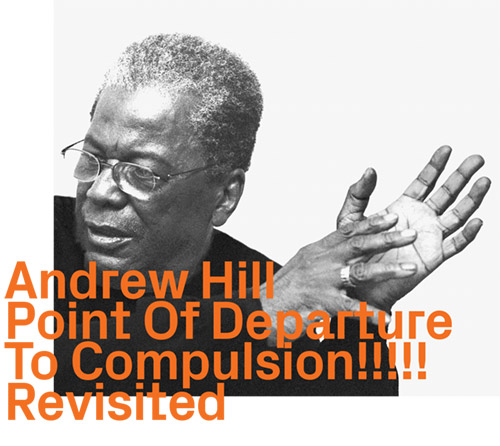




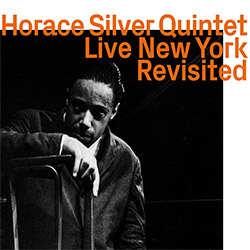

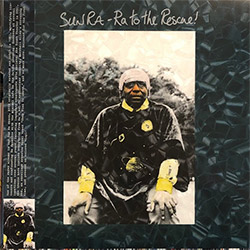



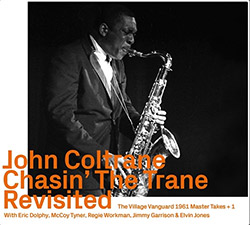
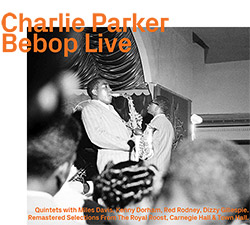

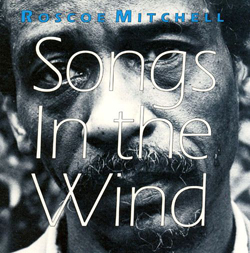
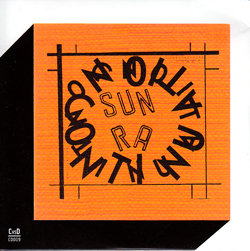
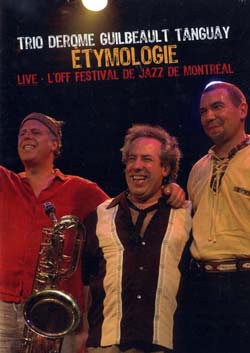


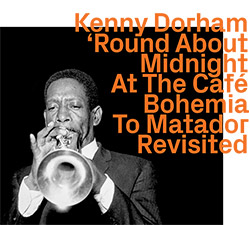

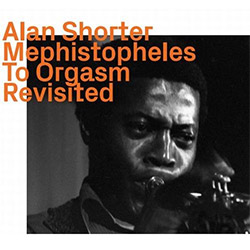
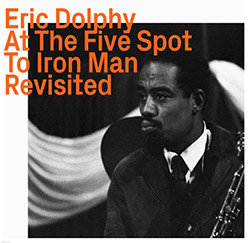


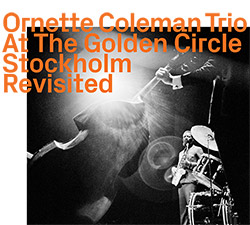




![Eternities: Rides Again [CASSETTE]](https://www.teuthida.com/productImages/misc4/36247.jpg)

![Lopez, Francisco: Untitled (2021-2022) [2 CDs]](https://www.teuthida.com/productImages/misc4/36438.jpg)




![Eventless Plot | Haarvol: The Subliminal Paths [CASSETTE + DOWNLOAD]](https://www.teuthida.com/productImages/misc4/36232.jpg)












![Eventless Plot | Francesco Covarino: Methexis [CASSETTE + DOWNLOAD]](https://www.teuthida.com/productImages/misc4/36231.jpg)

![Brown, Dan / Dan Reynolds: Live At The Grange Hall [unauthorized][CASSETTE]](https://www.teuthida.com/productImages/misc4/36245.jpg)





![Das B (Mazen Kerbaj / Mike Majkowski / Magda Mayas / Tony Buck): Love [VINYL]](https://www.teuthida.com/productImages/misc4/36329.jpg)


![Hemphill Stringtet, The: Plays the Music of Julius Hemphill [VINYL]](https://www.teuthida.com/productImages/misc4/36409.jpg)



![Halvorson, Mary Septet: Illusionary Sea [2 LPS]](https://www.teuthida.com/productImages/misc4/17952.jpg)




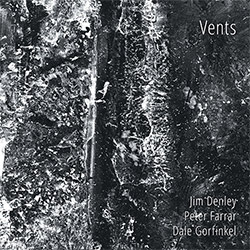
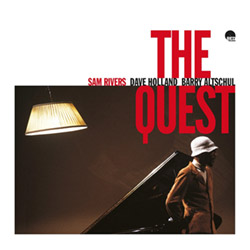
![Re-Ghoster Extended: The Zebra Paradox [VINYL]](https://www.teuthida.com/productImages/misc4/36204.jpg)
![FDF Trio: Possibility And Prejudices From Within A Cup [VINYL]](https://www.teuthida.com/productImages/misc4/36205.jpg)
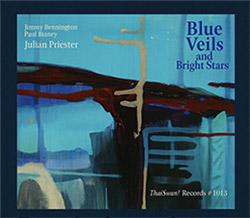

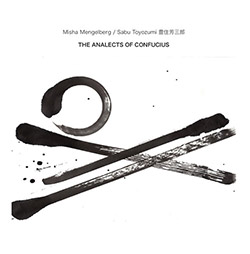





![Money : Money 2 [2 CDs]](https://www.teuthida.com/productImages/misc4/35894.jpg)




![Klinga, Erik: Elusive Shimmer [VINYL]](https://www.teuthida.com/productImages/misc4/36258.jpg)
![CHANGES TO blind (Phil Zampino): Volume 9 - I Wave on a Fine Vile Mist [CD + DOWNLOAD]](https://www.teuthida.com/productImages/misc4/36061.jpg)

![Wallmart / Rubbish: Asset Protection [split CD]](https://www.teuthida.com/productImages/misc4/35900.jpg)


![+Dog+: The Family Music Book Vol. 5 [2 CDs]](https://www.teuthida.com/productImages/misc4/35897.jpg)
![Kuvveti, Deli : Kuslar Soyledi [CASSETTE w/ DOWNLOAD]](https://www.teuthida.com/productImages/misc4/36107.jpg)

![Nakayama, Tetsuya: Edo Wan [CASSETTE w/ DOWNLOAD]](https://www.teuthida.com/productImages/misc4/36105.jpg)




![Yiyuan, Liang / Li Daiguo: Sonic Talismans [VINYL]](https://www.teuthida.com/productImages/misc4/35957.jpg)






![Palestine, Charlemagne / Seppe Gebruers: Beyondddddd The Notessssss [VINYL]](https://www.teuthida.com/productImages/misc4/36206.jpg)
![Palestine, Charlemagne / Seppe Gebruers: Beyondddddd The Notessssss [NEON GREEN VINYL]](https://www.teuthida.com/productImages/misc4/36207.jpg)

![Laubrock, Ingrid: Purposing The Air [2 CDs]](https://www.teuthida.com/productImages/misc4/35639.jpg)

![Yoko, Ono / The Great Learning Orchestra: Selected Recordings From Grapefruit [2 CDs]](https://www.teuthida.com/productImages/misc4/35841.jpg)









![Zorn, John / JACK Quartet: The Complete String Quartets [2 CDs]](https://www.teuthida.com/productImages/misc4/35609.jpg)

![Lonsdale, Eden: Dawnings [2 CDs]](https://www.teuthida.com/productImages/misc4/35480.jpg)



![Sorry For Laughing (G. Whitlow / M. Bates / Dave-Id / E. Ka-Spel): Rain Flowers [2 CDS]](https://www.teuthida.com/productImages/misc4/35985.jpg)

![Rolando, Tommaso / Andy Moor : Biscotti [CASSETTE w/ DOWNLOADS]](https://www.teuthida.com/productImages/misc4/36106.jpg)


![Electric Bird Noise / Derek Roddy: 8-10-22 [CD EP]](https://www.teuthida.com/productImages/misc4/35970.jpg)








![Elephant9 : Mythical River [VINYL]](https://www.teuthida.com/productImages/misc4/34624.jpg)



![Elephant9 with Terje Rypdal: Catching Fire [VINYL 2 LPs]](https://www.teuthida.com/productImages/misc4/35355.jpg)
![Deerlady (Obomsawin, Mali / Magdalena Abrego): Greatest Hits [VINYL]](https://www.teuthida.com/productImages/misc4/34876.jpg)







![Surplus 1980: Illusion of Consistency [CD]](https://www.teuthida.com/productImages/misc4/35069.jpg)
![Staiano, Moe: Away Towards the Light [VINYL + DOWNLOAD]](https://www.teuthida.com/productImages/misc4/35037.jpg)
![Coley, Byron: Dating Tips for Touring Bands [VINYL]](https://www.teuthida.com/productImages/misc4/17906.jpg)

![Lost Kisses: My Life is Sad & Funny [DVD]](https://www.teuthida.com/productImages/misc4/lostKissesDVD.jpg)